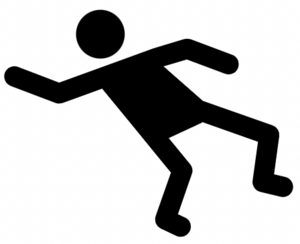Fascination About Dementia Fall Risk
Table of ContentsSome Known Details About Dementia Fall Risk Not known Factual Statements About Dementia Fall Risk Getting My Dementia Fall Risk To WorkHow Dementia Fall Risk can Save You Time, Stress, and Money.A Biased View of Dementia Fall Risk
Assessing autumn risk assists the whole medical care team create a more secure environment for each patient. Guarantee that there is a marked location in your clinical charting system where team can document/reference ratings and record appropriate notes connected to fall prevention. The Johns Hopkins Fall Risk Assessment Tool is just one of many devices your team can use to aid protect against adverse medical events.Person falls in medical facilities are typical and debilitating damaging events that linger regardless of decades of initiative to reduce them. Improving interaction throughout the assessing nurse, treatment group, client, and patient's most entailed close friends and household might reinforce autumn avoidance efforts. A group at Brigham and Women's Health center in Boston, Massachusetts, sought to create a standardized loss prevention program that centered around boosted communication and patient and household engagement.

The innovation group emphasized that effective execution depends upon patient and team buy-in, combination of the program right into existing process, and integrity to program procedures. The team kept in mind that they are grappling with exactly how to guarantee connection in program implementation during durations of situation. During the COVID-19 pandemic, for instance, an increase in inpatient falls was related to limitations in person engagement in addition to restrictions on visitation.
Little Known Facts About Dementia Fall Risk.
These events are typically thought about preventable. To carry out the intervention, organizations require the following: Accessibility to Loss TIPS resources Autumn TIPS training and retraining for nursing and non-nursing team, including brand-new registered nurses Nursing operations that enable for client and family members engagement to carry out the drops assessment, make sure usage of the avoidance plan, and carry out patient-level audits.
The outcomes can be extremely destructive, commonly increasing client decrease and causing longer health center keeps. One study approximated keeps increased an additional 12 in-patient days after an individual loss. The Loss TIPS Program is based upon appealing people and their family/loved ones throughout 3 major procedures: assessment, personalized preventative treatments, and bookkeeping to ensure that patients are taken part in the three-step loss prevention process.
The client analysis is based upon the Morse Fall Scale, which is a validated autumn danger analysis device for in-patient healthcare facility settings. The scale consists of the 6 most usual reasons people in medical facilities drop: the patient autumn background, high-risk conditions (including polypharmacy), use IVs and various other external devices, psychological condition, gait, and wheelchair.
Each danger element relate to one or more workable evidence-based treatments. The nurse creates a plan that includes the interventions and shows up to the care team, client, and family on a laminated poster or published aesthetic aid. Registered nurses develop the strategy while meeting the patient and the person's family.
The Only Guide for Dementia Fall Risk
The poster serves as a communication tool with various other participants of the individual's treatment team. Dementia Fall Risk. The audit component of the program includes assessing the patient's knowledge of their threat elements and prevention strategy look at here now at the device and healthcare facility degrees. Registered nurse champs conduct at the very least five specific meetings a month with patients and their households to examine for understanding of the loss avoidance strategy

An estimated 30% of these drops lead to injuries, which can range in seriousness. Unlike various other adverse events that call for a standard medical reaction, autumn prevention depends very on the demands of the individual. Including the input of people that recognize the individual ideal permits higher personalization. This technique has actually verified to be a lot more efficient than autumn prevention programs that are based mainly on the production of a risk score and/or are not customizable.
8 Easy Facts About Dementia Fall Risk Explained

Based upon bookkeeping results, one website had 86% conformity and two sites had over 95% conformity. A cost-benefit evaluation of the Autumn TIPS program in eight Full Article healthcare facilities estimated that the program price $0.88 per individual to execute and resulted in financial savings of $8,500 per 1000 patient-days in direct expenses connected to the avoidance of 567 tips over three years and eight months.
According to the innovation team, companies interested her latest blog in executing the program needs to conduct a readiness evaluation and drops avoidance gaps analysis. 8 In addition, organizations must ensure the needed framework and workflows for application and create an application strategy. If one exists, the organization's Fall Avoidance Task Pressure ought to be associated with preparation.
The Ultimate Guide To Dementia Fall Risk
To start, companies must make certain conclusion of training components by registered nurses and nursing aides - Dementia Fall Risk. Health center staff should evaluate, based upon the demands of a hospital, whether to utilize a digital wellness document printout or paper version of the fall prevention plan. Carrying out groups should recruit and educate registered nurse champs and develop processes for bookkeeping and reporting on autumn data
Team need to be involved in the procedure of revamping the workflow to involve clients and family in the evaluation and prevention strategy process. Systems must be in area to make sure that systems can comprehend why an autumn occurred and remediate the reason. More especially, nurses must have channels to give continuous feedback to both personnel and system leadership so they can change and improve autumn avoidance process and connect systemic issues.